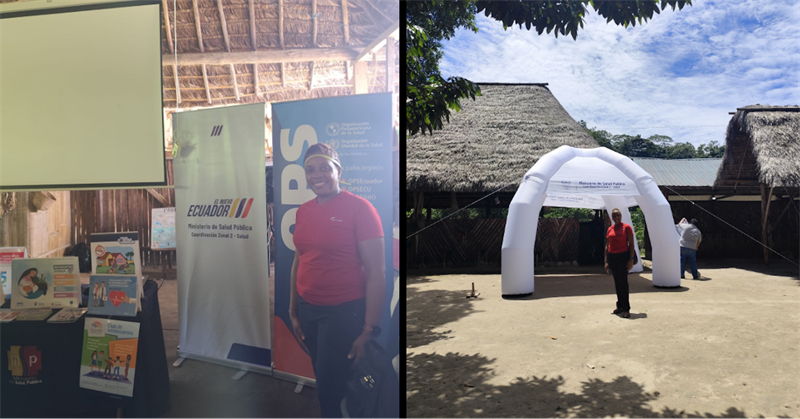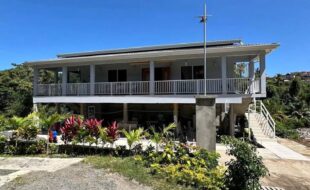 Saint Lucia continues to strengthen its public health surveillance systems with the participation of Medical Surveillance Officer Dr. Dana DaCosta Gomez, in a workshop to revise the first version of the “Guidance for the Implementation of Community Event-Based Surveillance (CEBS) for Early Warning and Response to Acute Events and Public Health Emergencies.”
Saint Lucia continues to strengthen its public health surveillance systems with the participation of Medical Surveillance Officer Dr. Dana DaCosta Gomez, in a workshop to revise the first version of the “Guidance for the Implementation of Community Event-Based Surveillance (CEBS) for Early Warning and Response to Acute Events and Public Health Emergencies.”
This document was developed by the Health Emergencies Information and Risk Assessment (HIM) unit of the Department of Emergencies of the Pan American Health Organization (PAHO) in order to provide guidance to Member States to develop and/or strengthen community-based event surveillance.
The three-day workshop, held in Ahuano, Ecuador took place from August 6 to 8, 2025 and brought together experts from across the Americas with extensive experience in public health surveillance, in particular with the implementation and management of the community-based event surveillance approach with the expected results and products of:
• A revised final version of the guide, incorporating the contributions and recommendations gathered during the informal consultations with experts (October 2024 and August 2025);
• A finalized tool for collecting and consolidating information from the community, designed to facilitate the operational implementation of the guide.
This workshop is timely for Saint Lucia given that on July 4, 2025, the Ministry of Health, Wellness and Elderly Affairs officially launched the Events-Based Surveillance system. As an extension of this initiative, Community Events-Based Surveillance (CEBS) enables designated focal points within communities to act as vigilant observers and informants, facilitating the early detection and prompt response to significant public health events.
In Saint Lucia, tourism, geographic dispersion, and vulnerability to climate-related disasters pose unique health challenges, CEBS offers a vital layer of protection. While the country has robust indicator-based systems—including laboratory and syndromic surveillance—these rely heavily on healthcare facilities and formal reporting structures.
Community Event-Based Surveillance fills critical gaps by enabling ordinary citizens—teachers, farmers, shopkeepers, religious leaders—to recognize and report “signals” which are then triaged and verified by public health authorities to determine if they represent a public health event requiring intervention.
During the workshop, Dr. Gomez actively contributed to the finalization of the guidance document and was interviewed on the significance of participating in this initiative, highlighting how Community Event-Based Surveillance will enhance early detection and response efforts in Saint Lucia.
The workshop was funded by the Pandemic Fund’s PROTECT project, with PAHO as the Executing Agency. The incorporation of CEBS marks a significant step toward a more inclusive, responsive, and resilient health surveillance system.
Following the workshop, the Ministry of Health, Wellness and Elderly Affairs will adapt key elements of the CEBS framework to the Saint Lucian context integrating it into existing surveillance platforms as Saint Lucia continues to strengthen its pandemic preparedness and response capabilities – one in which every citizen plays a vital role in protecting their community.




